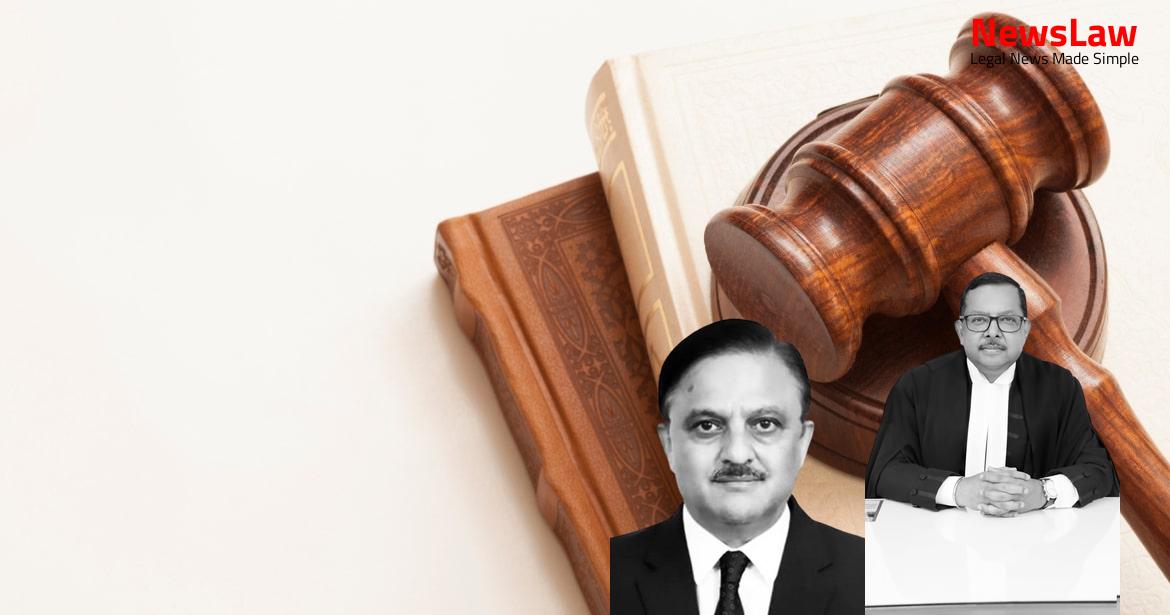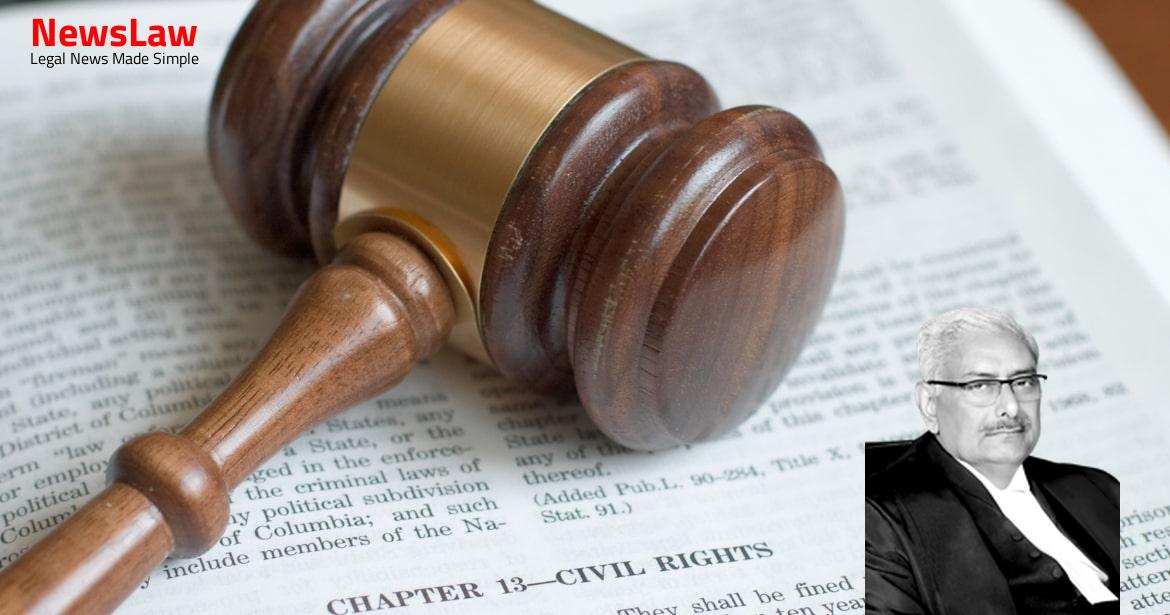Explore a crucial legal case where the Court delves into the intricate matter of concurrent and consecutive sentencing in criminal cases. The analysis emphasizes the necessity of clearly specifying the running of multiple sentences to ensure fair and just punishment. This summary provides valuable insights into the judicial approach towards sentencing in complex legal scenarios.
Facts
- The Trial Court did not specify whether the punishments of imprisonment would run concurrently or consecutively.
- The Trial Court sentenced the appellants for offences under Sections 363, 366, and 376(1) in that order.
- The High Court modified the default stipulations in the reverse order and did not address the issue of concurrent or consecutive running of sentences.
- The Jail Superintendent mentioned that the appellants had undergone 10 years and 1 month of imprisonment but were serving 22 years due to lack of clarity in the sentencing order.
- The High Court modified the sentencing order for the appellant No 1 to include additional imprisonment in case of default in fine payment.
- The High Court did not consider the lack of specification regarding concurrent or consecutive running of sentences by the Trial Court.
- The scope of the appeal is restricted to the question of sentence, and the appellants had already served 13 years and 2 months of imprisonment.
- The parties’ counsels have been heard, and the matter is being considered at this stage.
- Case Crime No 44 of 2008 was registered for offences under Sections 363 and 366 IPC.
- Complainant’s 13-year-old daughter was enticed by the accused-appellant No 2 Faimuddin @ Feru @ Sonu.
- High Court counsel only argued on the point of sentence, not on conviction.
- Charge-sheet filed against the appellants for offences under Sections 363, 366, and 376 IPC.
- Victim girl was recovered during the investigation.
Also Read: Legal Analysis in Joint Trials Error
Arguments
- Learned counsel for the appellants argued that the Court must specify whether sentences run concurrently or consecutively.
- The counsel referred to past decisions to support the argument that sentences in cases involving similar offenses have been ordered to run concurrently.
- It was highlighted that the Trial Court and High Court failed to specify the order in which the sentences would run.
- The argument was made that the single transaction principle should govern whether sentences run concurrently or consecutively.
- The counsel also sought the benefit of reduction of default sentence for one of the appellants who did not initially file an appeal but was later allowed to do so by the Court.
- A plea was made for considering the disproportionality of a total term of 22 years if sentences were to run consecutively, given that the appellants had already served over 13 years of imprisonment.
- Citing a relevant decision, it was mentioned that it is not the norm for multiple sentences to run consecutively.
- The learned AAG argues that in the present case, the Trial Court did not specify concurrent running of sentences, so they are to run consecutively.
- Reference is made to the Constitution Bench decision in Muthuramalingam to support the contention that term sentences for multiple offences run consecutively unless directed otherwise.
- The learned AAG for the State asserts that concurrent running of sentences is case-specific and cannot be claimed based on similar cases.
Also Read: Dismissal of Contempt Petition: Legal Analysis
Analysis
- Section 31(1) CrPC gives complete discretion to the court to order sentences for multiple offences at one trial to run concurrently, considering the nature of offences and surrounding factors.
- Court must specify clearly whether sentences are to run concurrently or consecutively while awarding multiple punishments of imprisonment.
- The discretion to order concurrent sentences is to be judiciously exercised based on the nature of offences and case circumstances, not mechanically.
- Failure to specify concurrent running of sentences implies consecutive running, and the order should state the sequence of execution if they are to run consecutively.
- The decisions in earlier cases related to different facts and cannot be applied as precedents for concurrent sentencing in this case.
- The appellant’s request to serve a total term of 22 years in prison was considered disproportionate in this case, as the nature of the offences and circumstances were examined.
- Previous cases cited did not provide grounds for interference in favor of the appellants in this situation.
- Omission to state whether sentences run concurrently or consecutively works against the accused as multiple sentences run consecutively by default.
- Single transaction principle refers to Section 220 CrPC and may lead to concurrent running of sentences based on facts and surrounding factors.
- The Code distinguishes between running sentences concurrently or consecutively, which is crucial for awarding punishment to the accused.
- Section 31 CrPC allows the court discretion to order sentences to run concurrently in case of multiple offences.
- Consecutive life sentences can be awarded for a series of murders in a single trial unless the court directs otherwise.
- Appellant No.2 did not raise the issue at the relevant stage, so the issue remains closed.
- The Court’s omission to fulfill obligations causes prejudice to both accused and prosecution.
- Appellant No.1 has deposited the fine amount as per counsel’s instructions.
- Pursuant to Article 142 of the Constitution of India, the maximum imprisonment for the appellants is limited to 14 years for the offenses in question.
- The modification of punishment is specific to the circumstances of this case only.
- The requirement of fine payment and default stipulations for both appellants remains unchanged.
Also Read: Legal Analysis on Goods Confiscation and Penalties
Decision
- Upon default in payment of fine, consecutive default sentences will be imposed for offences under Sections 363, 366, and 376(1) IPC.
- The appeal has been partially allowed.
Case Title: SUNIL KUMAR @ SUDHIR KUMAR Vs. THE STATE OF UTTAR PRADESH THROUGH PRINCIPAL SECRETARY HOME DEPARTMENT (2021 INSC 298)
Case Number: Crl.A. No.-000526-000526 / 2021



